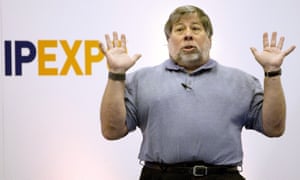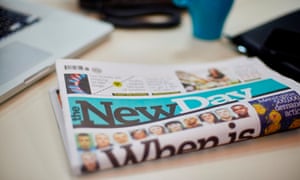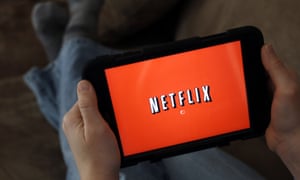Notes and Quotes
Media Magazine
MM39
Variously known as the symbol for pound (as in weight) or denoting
a numeral, the humble hashtag has proved to be a very versatile little fellow.
Television has never been more fragmented. There are more
channels than ever before, and there’s more ways than ever to access them.
These days, we’re not just time-shifting, we’re platform
shifting. Missed Misfits? Don’t fret. Watch on it 4OD. Buy yourself a series
pass on iTunes and plonk your iPad on your lap. Or watch it on your phone as
the bus rumbles through the rush-hour traffic and you make your way to college.
With the audience scattering across so many platforms, TV’s
cultural function as provider of shared experiences is put ever more at risk.
TV loves a good watercooler moment. As a media student,
you’ll be familiar with the concept of uses and gratifications. You know that
audiences crave social interaction, and that TV is a supreme provider of it.
Alan Sugar leaving the entrails of another hapless would-be Apprentice dripping
all over the boardroom carpet. Another jaw dropping (for the right reasons or
the wrong ones) X Factor auditionee. The latest improbable plot-twist on
Waterloo Road.
Twitter – and other social networks like Facebook – give you
a chance to gather round and, via the exchange of banter and barbs with
friends, fulfil that particular gratification.
Of course ultimately TV executives are just happy if we’re
watching at all – as long as we’re doing it through legitimate channels rather
than streaming Glee seconds after it’s aired in America, or downloading the
torrent of the latest HBO extravaganza in the gap before it makes the crossing
to Sky Atlantic.
Like virtually all media industries, TV has been caught up
in what has been described as a perfect storm that has seen advertising
revenues plummet.
From one direction, a recession that has seen consumers
tighten their belts, consequently leaving many companies with reduced marketing
budgets.
From another direction, changing viewing habits. With so
many viewing options available, how do you predict with accuracy that you can
deliver to advertisers the same number of hungry eyes that you did in the past?
Then there’s the Google factor. If you’re an advertiser why
chance that your message will get through when you could take it straight to
Google and reach people as they are already reaching – through the power of
search – for you?
From now on, you need never watch anything alone. If you
want company, you’re only ever a hashtag away.
The rush to pronounce, often in hyperbolic, borderline
hysterical terms, is one of the side-effects of empowering the audience with
the means to provide such instant feedback.
Cultivating an audience that is interactive means building a
sense of community and fostering the brand loyalty that all media institutions
crave. If you interact with a show, then you invest far more emotionally than
if you are just lolling on the sofa.
Initially rather ad hoc and impromptu, many shows are now
actively encouraging their audience to congregate around their hashtag. Have I
Got News For You helpfully abbreviates to #HIGNFY, leaving you as many of your
140 characters as possible in which to prove you can by just as sharp-witted as
Paul Merton, Ian Hislop and co.
MM45 – Reading Broadchurch
The killer
of Danny Latimer was being kept under wraps: only 29 people – cast and crew and
some executives – knew the identity of the murderer before the final programme.
No wonder thousands of people took to Twitter and other online forums to
speculate, prompting a massive surge of interest in the show.
At the end of the episode, Twitter and Facebook fans were
offered the chance to see an exclusive scene and, ultimately, we were promised
another series next year.
MM47
Like Educating Essex, Educating Yorkshire has attempted to
exploit social media and other technologies in order to engage with its
audience, but, rather than simply go for a simple ‘North vs South:
here’s-the-difference-comparison’, the more recent series has sought to be
rather more thoughtful and reflective.
Since the 1950s, the youth market has grown significantly:
it is now worth approximately $200 billion a year in the US alone.
Spending on online marketing overtook that for TV marketing
in the UK back in 2009. The recent flotation of Twitter generated billions,
despite the fact that the company has yet to make a profit: yet you can be sure
it won’t be long before it (along with other apparently ‘free’ services like
Instagram and Snapchat) is being used to generate marketing revenue.
Marketers are also very active on Facebook and other social
networking sites, not just with their own branded profiles, but also in
circulating applications, competitions and other messages about what’s
currently ‘cool’.
For marketers, social networking is the modern version of
word of mouth: it’s a very effective way to embed marketing messages into the
dynamics of young people’s friendship groups.
Youth marketing strategies are participatory: they aim to
get us involved in a dialogue, to enable us to create and distribute our own
messages, to feel as though we are the ones in charge.
This is also the case with viral marketing, where messages
are distributed from person to person, often using mobile technology. Cadbury’s
‘gorilla’ campaign from 2007 was a very successful example of viral marketing: while
the ads were occasionally on TV, they were mainly viewed on YouTube and similar
platforms, on the basis of personal recommendation.
The next step on from this is user- generated marketing,
where consumers actually create the advertising messages.
According to Doritos, this is all about ‘sharing talent and
creativity’; but of course it ensures that consumers (both the ad-makers and
those who vote for them, in an X-Factor-style competition) will ‘buy in’ to
their product.
Finally, co-creation is a fairly new approach, in which
consumers are invited (and paid) to work with market researchers to develop new
product ideas. They attend focus group workshops in which new ideas are brainstormed
and developed – ideas which the researchers then take back (and sell) to the
companies.
In different ways, these techniques all display aspects of
my three ‘Ps’: they are pervasive, personalised and participatory. According to
marketers, they are all about empowering young consumers.
On the other hand, we could argue that these kinds of
techniques are much more subtle and manipulative – and much less visible and
obvious – than traditional advertising. They are harder to identify, and
perhaps harder to resist. They illustrate how commercial marketing has become
much more deeply embedded in our private lives and our personal relationships.
Megaupload.com was a huge file-hosting site which was
ostensibly a means for internet users to store and share files, much like
YouTube or Dropbox. In reality it was a notorious host of copyrighted media,
which appeared in almost any search on video stream aggregators such as
Primewire.
MM53 - Catfished
In an age dominated by social media and online
relationships, Catfish: The TV Show seems an obvious spin-off.
Broadcast in the UK on MTV and Five*, it premiered on MTV on
November 12, 2012, and is currently in its fourth season. (Target Audiences)
The show has been hugely successful, particularly with the
young 15-to-34 media-savvy audience which defines MTV’s core demographic.
It also offers an interesting, if sometimes disturbing,
examination of the perils of engaging in online relationships.
Shot with a small Canon Powershot S110 in a ‘Gonzo verite’
style (Cheap / Easy to make)
The audience become privy to the intimate details of some
online relationships. Together with the conflict and ultimately the
‘confession’ at the end of the show when the Catfish is revealed and the deceit
is clearly evident, this serves only to further pleasure the audience.
The show raises some interesting debates about identity and
representation, often skilfully exploring these in terms of class, gender and
sexuality.
This show exposes the desperate, lonely, individual seeking
solace in adopting the persona of someone who doesn’t really exist in order to
validate their own existence.
There has for some time been growing concern about the
dangers of using the internet and social media sites.
Both the Catfish documentary and TV show have heightened
this sense of fear and moral panic by exposing the potential reality for users
– that the online world is not what it seems.
It reinforces the ugly truth that the internet allows people
to deceive each other.
Whilst the narrative of the text unfolds, the audience are
all too aware that the online love is not what he/she professes to be –
particularly when the relationship has spanned some time with no physical
meet-up or use of Skype.
It also reinforces a disturbing message: the anonymity of
social media provides us with a sophisticated toolkit to create a whole new
persona: a world in which we can change our age, gender, marital status, job –
in essence, our whole life. And if this wasn’t disturbing enough – it
highlights the fact that the internet is plagued with people willing and able
to utilise this toolkit and that others are desperate enough to fall for it.








